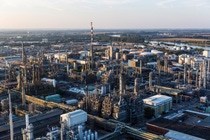Sustainability
Trinseo and BASF jointly announce Business Collaboration on Circular Feedstock
Trinseo (NYSE: TSE) and BASF announce today the intention to expand their businesses with the production of styrene based on circular feedstock. The enhanced collaboration between Trinseo and BASF aims to increase efforts by both companies in the development and management of styrene featuring an improved environmental profile.

Two types of mass balanced styrene
There are two types of styrene BASF can produce with a mass balance approach – renewable feedstock based-styrene and styrene based on chemically recycled feedstock. Mass balance is a chain of custody model designed to keep track of the total amount of input (e. g. circular feedstock) throughout the production cycle and ensure an appropriate allocation to the finished goods. Both of these alternative feedstocks replace a certain amount of virgin fossil resources at the beginning of the value chain - leading to a reduction of CO2 emissions.
To produce BMB styrene, BASF replaces fossil resources like naphtha or natural gas by renewable feedstocks derived from organic waste or vegetable oils. When manufacturing Ccycled™ products, BASF uses pyrolysis oil derived from plastic waste that is not recycled mechanically, e.g., mixed household waste or end-of-life tires, as a feedstock, thus contributing to plastics circularity.
With this approach Trinseo and BASF can offer products with a better environmental profile and the same properties as those manufactured from fossil feedstock. The allocation process via the mass balance approach as well as the products are certified by an independent auditor. Read more about BASF’s ChemCycling™ project here.


